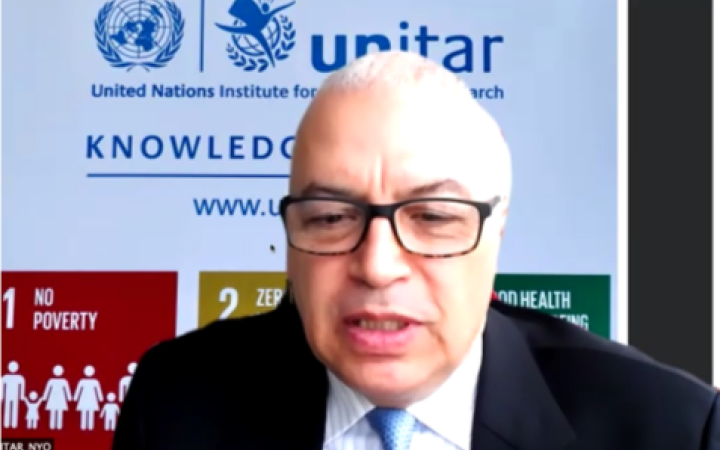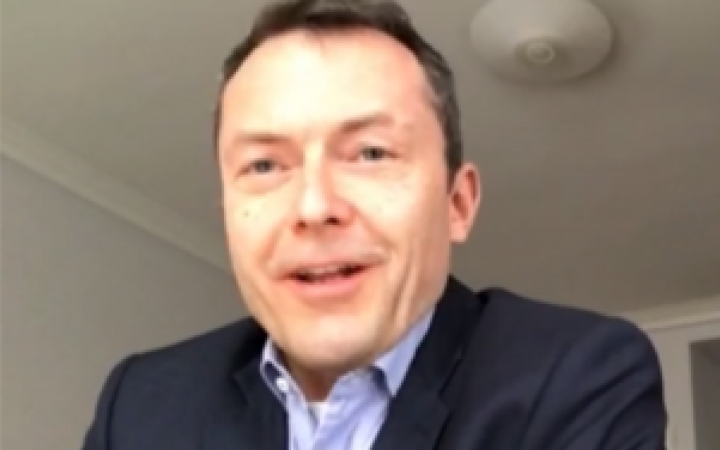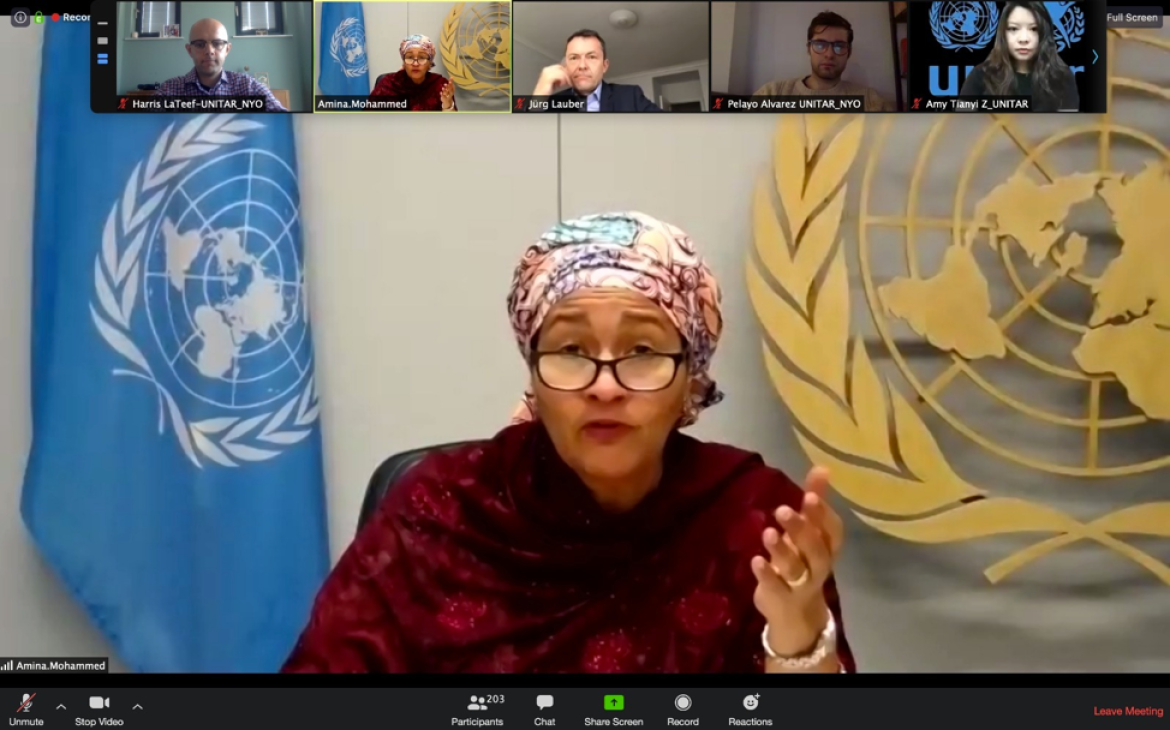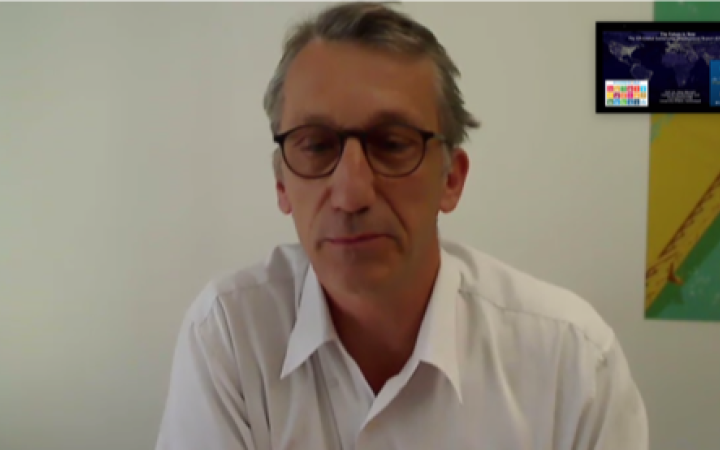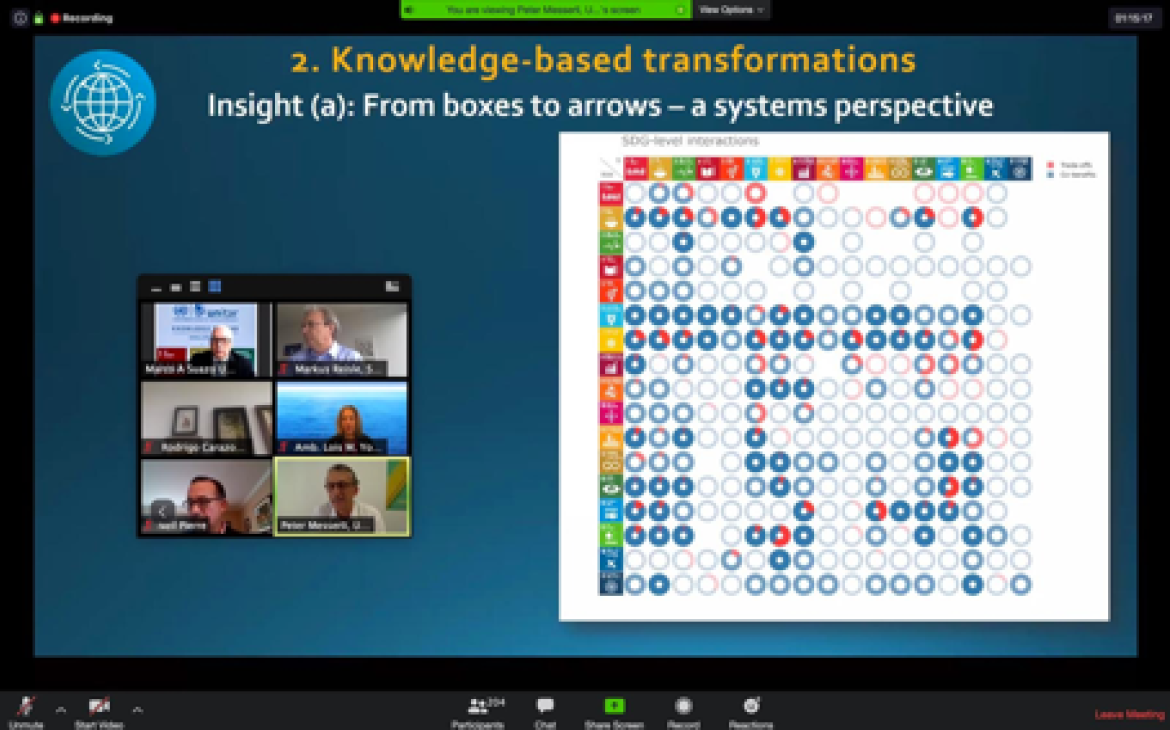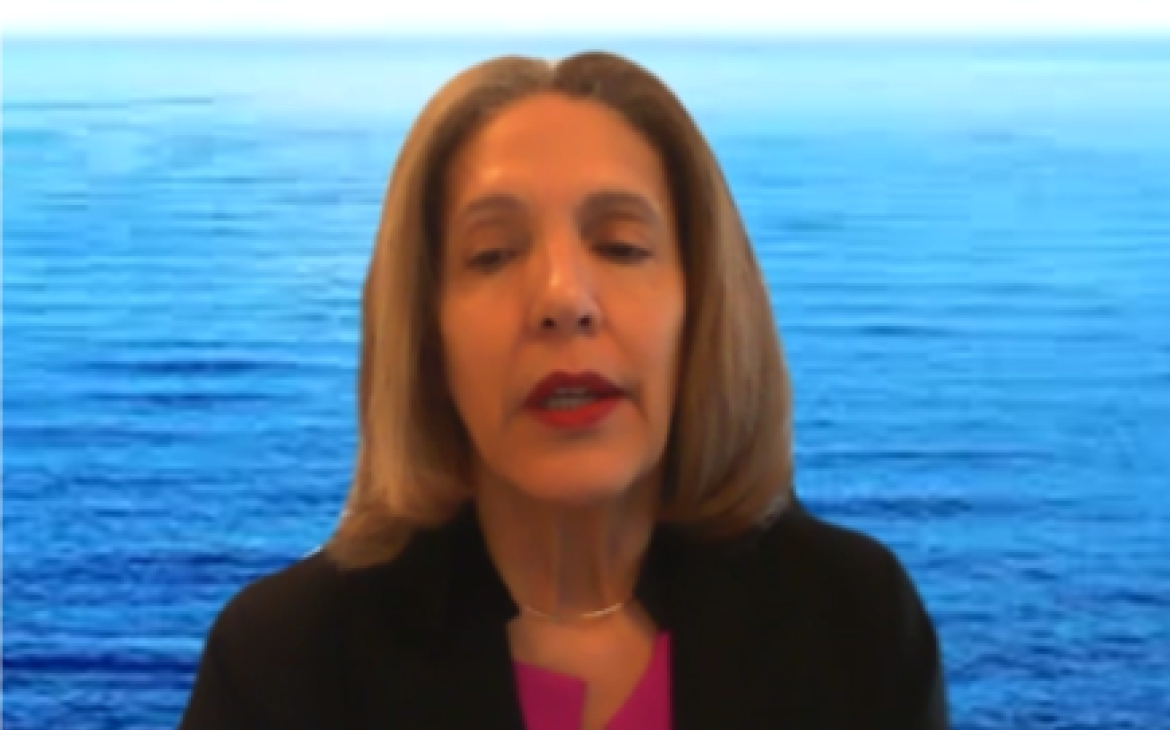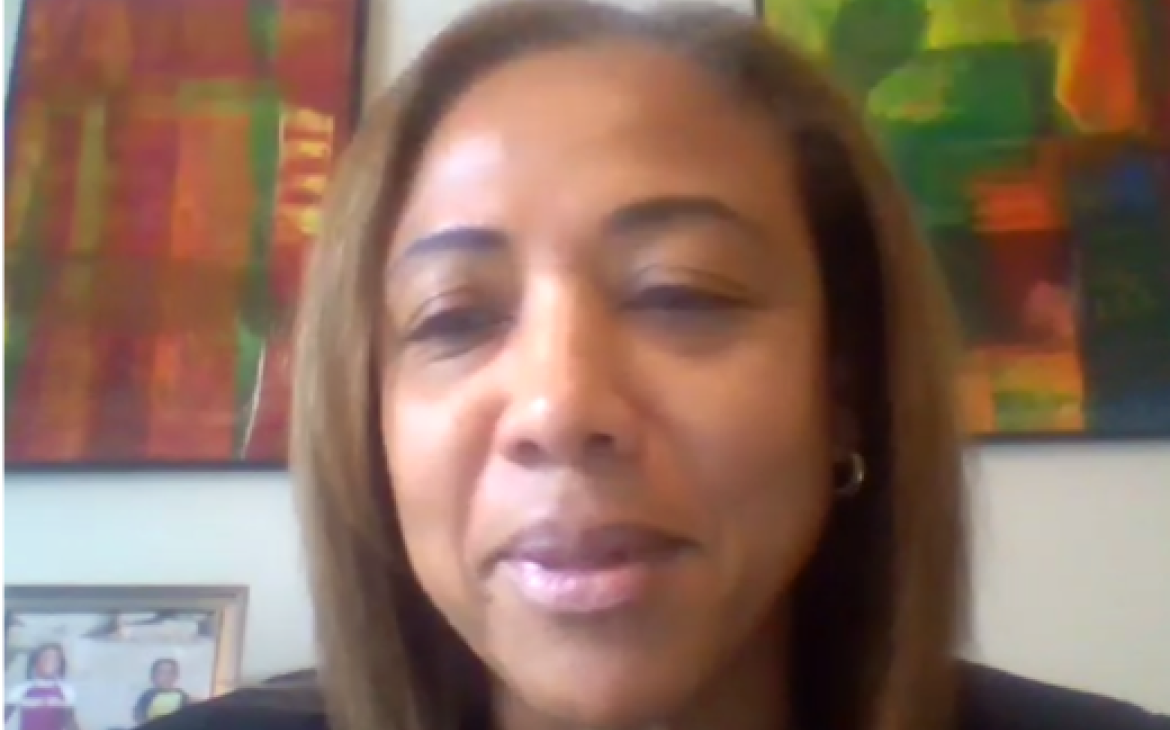24 April 2020, New York, the United States – The first module of the “Realizing the Future We Want: Training series in preparation for the General Assembly’s 2020 quadrennial comprehensive policy review (QCPR) of operational activities for development of the United Nations system” successfully took place virtually with more than 225 participants. This series is a collaboration between UNITAR, the Permanent Mission of Switzerland to the United Nations and the United Nations Department of Economic and Social Affairs (UN DESA) that aims to equip Member States with the most relevant information as they prepare for the 2020 QCPR.
A recording of the session is available here.
This first module, titled “The QCPR and the UN development system”, provided a broad introduction to the QCPR, including the repositioning of the UN development system. The session opened with remarks from Mr. Marco Suazo, UNITAR New York’s Head of Office. He welcomed the delegates that were joining the session virtually from different parts of the world, and he expressed his gratitude towards colleagues from the UN DESA and the Permanent Mission of Switzerland for their assistance in the preparation of the event.
This was followed by welcome remarks from H.E. Mr. Jürg Lauber, the Permanent Representative of Switzerland to the United Nations, and the Deputy Secretary-General, Ms. Amina J. Mohammed with a keynote address. The opening set the stage by underscoring the importance of the QCPR as it enables Member States to strategically guide the UN development system to be effective, efficient and coherent, which is even more pressing in the context of COVID-19.
Following the opening, a panel discussion was moderated by H.E. Mr. Neil Pierre, the G77 Coordinator from the Permanent Mission of Guyana to the UN.
The first panelist, Mr. Peter Messerli, Co-chair of the Independent Group of Scientists 2019 and Co-author of the Global Sustainable Development Report, provided an overview on progress toward of 2030 Agenda. Mr. Messerli’s presentation (available here) points to progress made toward achieving the SDGs from a scientific point of view. This includes as well as persistent challenges, including rising inequalities, climate change. He pointed out the interdependencies between the SDGs and the necessity for consistent strategies by agreeing on sound trade offs. The second panelist, H.E. Ms. Lois Michele Young, the Permanent Representative of Belize to the United Nations, spoke to the urgency to deliver on the SDGs during the Decade of Action . Ms. Young shared ideas on how the UN development system could best support the acceleration required to achieve the 2030 Agenda, pointing to some of the unique challenges faced by Small Island Developing States.
Following a brief Q&A with the panelists, Mr. Markus Reisle, Counsellor of the Permanent Mission of Switzerland to the UN and Ms. Marion Barthelemy, Director of the Office for Intergovernmental Support and Coordination for Sustainable Development, UN DESA, delivered remarks on the evolution of Member States’ guidance to the UN development system through the QCPR. Ms. Barthelemy shared critical information on the background, process and technical details of the QCPR, while Mr. Reisle spoke to the current state-of-play on key QCPR issues, including funding and the repositioning efforts. To complement, Ms. Michelle Gyles McDonnough, the Director of the Sustainable Development Unit of the Executive Office of the Secretary-General, provided further detail on the reform efforts to reposition the UN development system; briefing participants on the efforts undertaken since 2017 to enable the system to better support countries with SDG implementation.
Wrapping up, Mr. Marco Suazo concluded the first module of the QCPR training by noting that the session has provided some food for thought on how Member States can use the 2020 QCPR during the Decade of Action to accelerate implementation of the 2030 Agenda for Sustainable Development.


